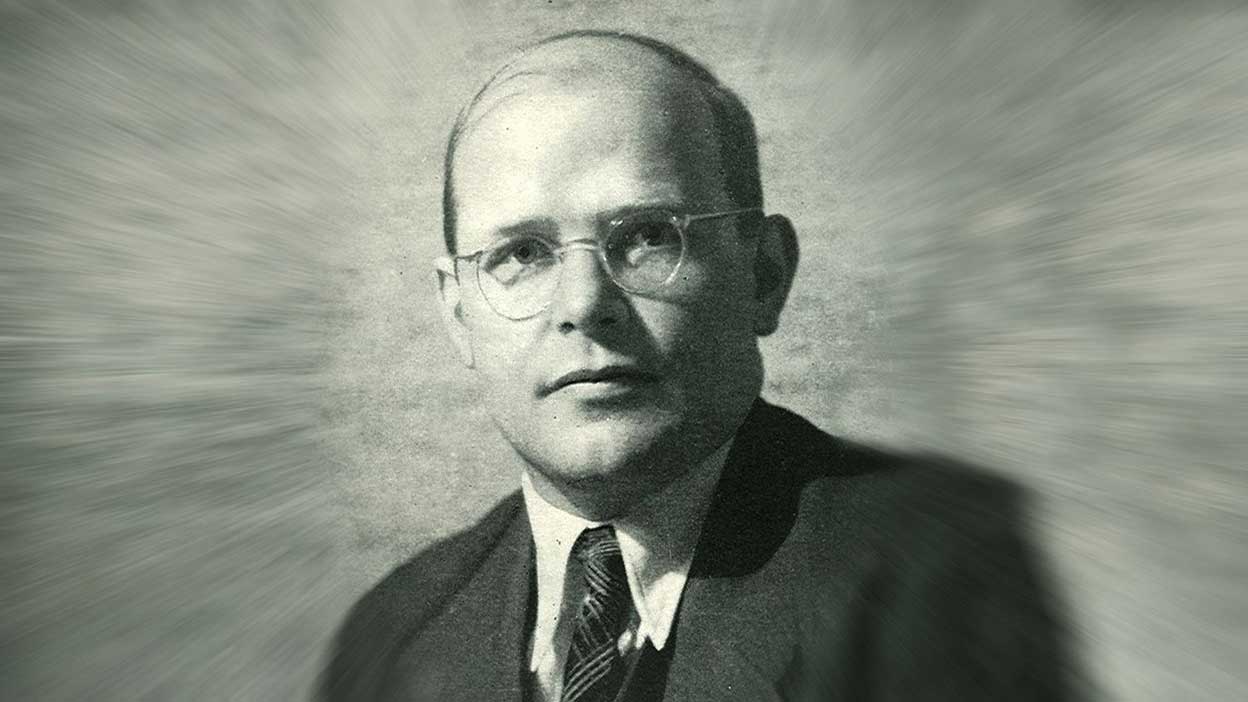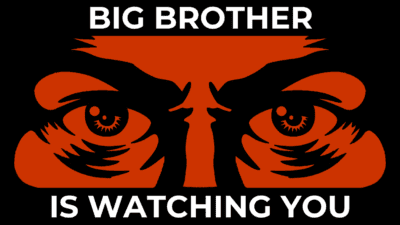Have you ever pondered why individuals often disregard clear truths, even when the evidence is undeniable? Or why political decisions are made that are clearly detrimental to the majority of people? These are not rare inquiries; many of us have likely considered them at some point.
The reason for such questions lies in the fact that we encounter these phenomena daily and they affect us all. But how does it even get to this point and above all what can do to stop such developments?
One figure who delved deeply into these questions was Dietrich Bonhoeffer, a theologian, pastor, and resistance fighter during Nazi Germany. He understood that stupidity transcends being a mere intellectual flaw; it is fundamentally a moral and social challenge.
In 1943, amid World War II, Bonhoeffer was detained by the Nazis due to his involvement in the resistance. During his imprisonment, he contemplated how Germany, a nation renowned for its cultural richness, had descended into a society plagued by cowardice and criminality.
Bonhoeffer’s observations were not confined to his time; the patterns he identified continue to resonate alarmingly in our modern world. Today, we witness the relevance of Bonhoeffer’s insights through the prevalence of fake news, conspiracy theories, and blind loyalty to populist figures.
These phenomena illustrate the perilous intersection of power and ignorance. Disinformation is strategically wielded to gain political power, fracture societies, and stifle independent thought.
Much like in Bonhoeffer’s era, people today dismiss obvious truths or succumb to the sway of power structures and group influences. His reflections serve not only as a profound warning but also as an urgent call to action for us to stay vigilant, assume responsibility, and stand boldly against these developments. The form of ignorance Bonhoeffer described is not merely historical; it poses a tangible threat to our future.
But what did Bonhoeffer mean when he spoke of “stupidity”?
During his time in prison, he formulated a theory explaining how ignorance is fostered within societies, why it poses such danger, and why it is more challenging to overcome than malice. He also sought to understand how this could be addressed. To Bonhoeffer, stupidity was not simply a lack of intelligence or education; rather, it was a mental obstruction that hinders critical thinking and independent action. This blockage becomes especially hazardous during times of power abuse and peer pressure when individuals relinquish their responsibility to authorities or the majority.
Bonhoeffer also noted that stupidity is not merely an individual problem but primarily a social phenomenon shaped by external influences like propaganda, fear, and ideology. Ignorance thrives where people forsake their ability for critical reflection and independent thought, whether out of fear, convenience, or a longing for belonging. These mechanisms immobilize the mind and render individuals more susceptible to manipulation.
Ignorance is particularly dangerous because it often functions subconsciously; those who act foolishly frequently believe they are justified and defend their views even more ardently. This makes stupidity an exceedingly challenging force to combat.
In his renowned letters from prison, Bonhoeffer contended that stupidity was a more formidable adversary of goodness than evil itself. While we can protest against evil, stupidity leaves us virtually defenceless; protests and force prove ineffective, as does reason.
Another crucial aspect is that ignorance becomes particularly menacing when coupled with power.
Bonhoeffer observed that when individuals find themselves within groups or under the influence of authoritarian figures, they become more vulnerable to irrationality. This vulnerability arises because the collective offers them a sense of security, while the burden of accountability for their actions shifts to the group or its leaders. This phenomenon sheds light on why people in authoritarian systems might ignore obvious truths and support harmful decisions. In these environments, irrationality is often intentionally fostered because obedience and conformity help maintain power.
Bonhoeffer’s insights resonate with the reflections of ancient philosophers who noted that humans are inherently social creatures. It is this very sociability that lays the groundwork for irrationality. While an individual’s foolish actions might not significantly disrupt the whole, a group acting irrationally can deeply affect individuals and magnify the overall impact.
Over millennia, human nature and the role of irrationality in our evolution have remained relatively unchanged. Some mental processes trace back millions of years to when primitive brains first began to develop. Among these processes, the inclination to follow the crowd is perhaps most notable. Consequently, many believe that in situations where information is lacking, the safest course is to do as others do. Unfortunately, this belief is often misguided and does not always lead to optimal outcomes. Herd behaviour, in fact, is a major factor contributing to irrationality.
This concept has been supported by numerous scientific studies, including a landmark experiment on social conformity conducted by psychologist Solomon Asch in 1951. The Asch Conformity Experiments examined how far individuals would go to align with group opinions, even when those opinions were clearly incorrect. Participants were placed in a group setting where some members were secretly in cahoots with the researcher. They were asked to perform simple visual tasks, such as comparing line lengths. The confederates deliberately provided wrong answers to see if the actual participants would follow suit.
The findings were both startling and deeply insightful, revealing how irrationality can take hold. Approximately 75% of participants conformed to the group at least once, knowingly giving incorrect answers. On average, about a third of participants went along with the group even when they knew the answers were wrong. These results illuminate the profound impact of social pressure on individual judgment and highlight the persistent role of irrationality in human behaviour.
This experiment serves as a vivid demonstration of the mechanisms Bonhoeffer described, highlighting how individuals not only conform to the majority but often relinquish their own beliefs to avoid conflict and social rejection.
It further underscores the power of peer pressure in stifling independent thought – a key element in Bonhoeffer’s theory on combating stupidity. Importantly, Bonhoeffer’s insights were not solely about identifying the roots of stupidity; he was also concerned with finding ways to counteract it. His conclusion was that stupidity is not easily defeated by education or reason alone. Instead, he argued for deep-seated changes, such as fostering courage, a sense of responsibility, and the ability to think critically and independently.
In today’s world, rife with misinformation and manipulation, how can we tackle this issue? As individuals, what steps can we take to combat stupidity?
The first crucial step is nurturing critical thinking in ourselves and those around us. This involves questioning information before accepting or sharing it, seeking reliable sources, and verifying claims instead of embracing them without scrutiny.
The second essential aspect is taking responsibility. Recognize that your actions – or lack thereof – have consequences. Resist being swayed by peer pressure or majority opinions; make informed decisions based on facts and personal values. It requires courage to stand firm in your beliefs, particularly when they are unpopular, yet this bravery is vital in resisting the negative impacts of stupidity.
Independent thinking is the third critical component. Avoid placing blind trust in authorities, and resist being influenced by trends or prevailing opinions. Only through independent thought can one escape the clutches of manipulation.
Bonhoeffer recognized that this is a challenging endeavour but believed that each person has the potential to break free from the cycle of stupidity by cultivating the courage to think critically, assume responsibility, and act independently.
The ultimate question remains: Are you prepared to demonstrate that courage?





test comment